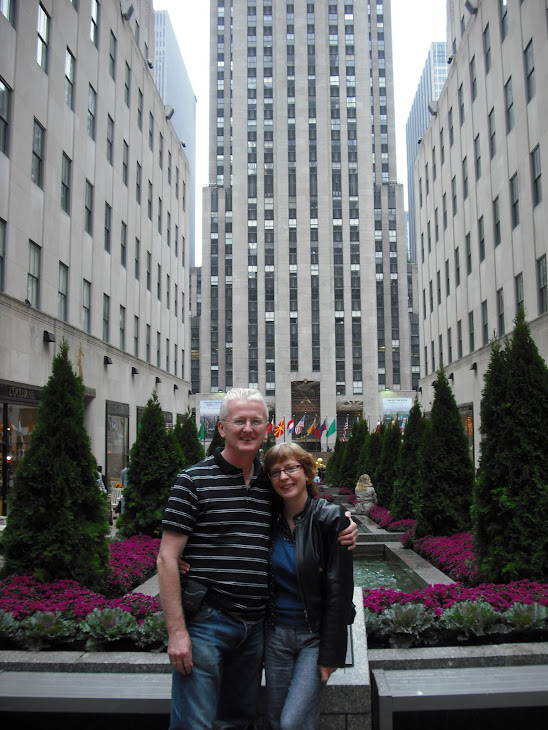Six years since diagnosis: Tennyson, Assisted Dying and Living Life
Six Years of MND
Coming up to the sixth anniversary since Roch’s diagnosis,
it feels like a time for reflection. Neither of us thought that he would last
this long and to my surprise I’m finding that reaching this stage requires a
change of mind-set on my part. In fact, our reactions to the reality of his
survival well beyond initial prognosis appear to me to be quite different and I
find this interesting. On my part I realise that I no longer view my husband as
someone with a terminal illness. It’s true - his deterioration has been so slow
and I am so used to his level of disability that although I find it trying at
times and struggle with the limitations it imposes on both our lives, I don’t
see him as a dying person. To me, he’s just Roch. I have ceased thinking about
his death and this means I need to focus more on acceptance of Life as it is
now and for the foreseeable future. It means living in the moment not just as a
couple, but for me as an individual, too and not postponing life until some
future uncertain l-a-r* date. But this is for a separate blogpost.
A Young Man's Fancy
I think Roch’s feelings are different. Alfred, Lord Tennyson
once wrote:“In the Spring, a young man’s fancy lightly turns to
thoughts of love.”This quote shot into my mind as I began this post, but I
amend it here to match our circumstances:
“In the Spring, a brave man’s fancy grimly turns to thoughts
of death.”
Doesn’t have the same ring to it, does it? And yet, it’s true. I
have no doubt that thoughts of death are often in his mind, but June is a special
time for us. This June especially, death is very much in our thoughts, as an
old and dear friend is dying, not from MND but from cancer. Roch feels it
acutely. Six years ago he expected to be dead long before anyone else of our
acquaintance. Once again, I know his thoughts are occupied with questions about
how his own end will come. What form will it take? How ‘decrepit’ will be be? (His
word, not mine.) The internet is a wonderful thing and yet it can also be a
frightening thing. We read about other men and women living with MND as they
and their loved ones document their experience. Some of what we read scares us.
He dreads a long and lingering death, immobile, unable to communicate freely.
He often speaks of suffocating, choking etc.
His doctors cannot tell him how the end will be for him, because they
don’t know. They can’t answer his question because everyone with MND is
different. Of course not everyone with MND will die a lingering and distressing
death, but the best I can say to him when we read of someone else’s struggle
and misery, as they battle against distressing symptoms at the end of life is:
“It may not be like that for you.” It’s little comfort. How
do we know?
So Roch ponders the manner of his death and worries, feeling
that he has no control and not enough information. Aware that Assisted Dying is illegal in the
UK, Roch feels his options are limited. He would like to choose the manner and
time of his death but presently feels that to exercise control he may decide to
refuse food and drink. What would the physical symptoms be? What would the
level of pain/discomfort be? If he didn’t accept nutrition, but was kept
hydrated – how long then before the end?
The hospice nurse is unable to answer these questions and as
the law currently stands, we can’t expect that he will. He really cannot
discuss issues around end of life in any context which might be construed,
however tenuously, with Assisted Dying and so tries valiantly instead to offer reassurance
to Roch; that his death is not imminent, that the palliative care at the
hospice is excellent, that his family are more than willing to continue to care
for him as long as it takes. We know these things, Roch knows these things, but
knowing them doesn’t help him. Roch
remains in a state of constant anxiety and will continue to wake at night on
occasion, with ‘the horrors’ as he describes it, facing an uncertainty about
his end with no control over the outcome. He doesn’t want to die. We don’t want
him to die, but if he is to enjoy the rest of his life at all, he needs to have
control over the end of it.
Assisted Dying Legislation in the House of Commons
So earlier this month we were delighted to learn that MPs
are to debate Assisted Dying legislation on 11th September. Labour MP Rob
Marris, who is introducing the bill, said,
“Alongside the vast majority of the public, I am in favour
of terminally ill people who are of sound mind having choice at the end of
life. It is a choice that I would want for myself and I do not think we should
be denying this to people who are facing imminent death.”
This will be an opportunity for Members of Parliament to
debate the best law which will not only give dying people choice but also
protect the vulnerable.
So here we are, on the eve of 16th June, six
years since diagnosis and we are still making plans and trying to enjoy as much as
we can together, as a couple and as a family. Wouldn’t it be nice if Roch could
relax and make the most of what’s left to him, untroubled by thoughts of his
death, knowing he would have some control at the end? 82% of the public would
agree. Do you?


No comments:
Post a Comment